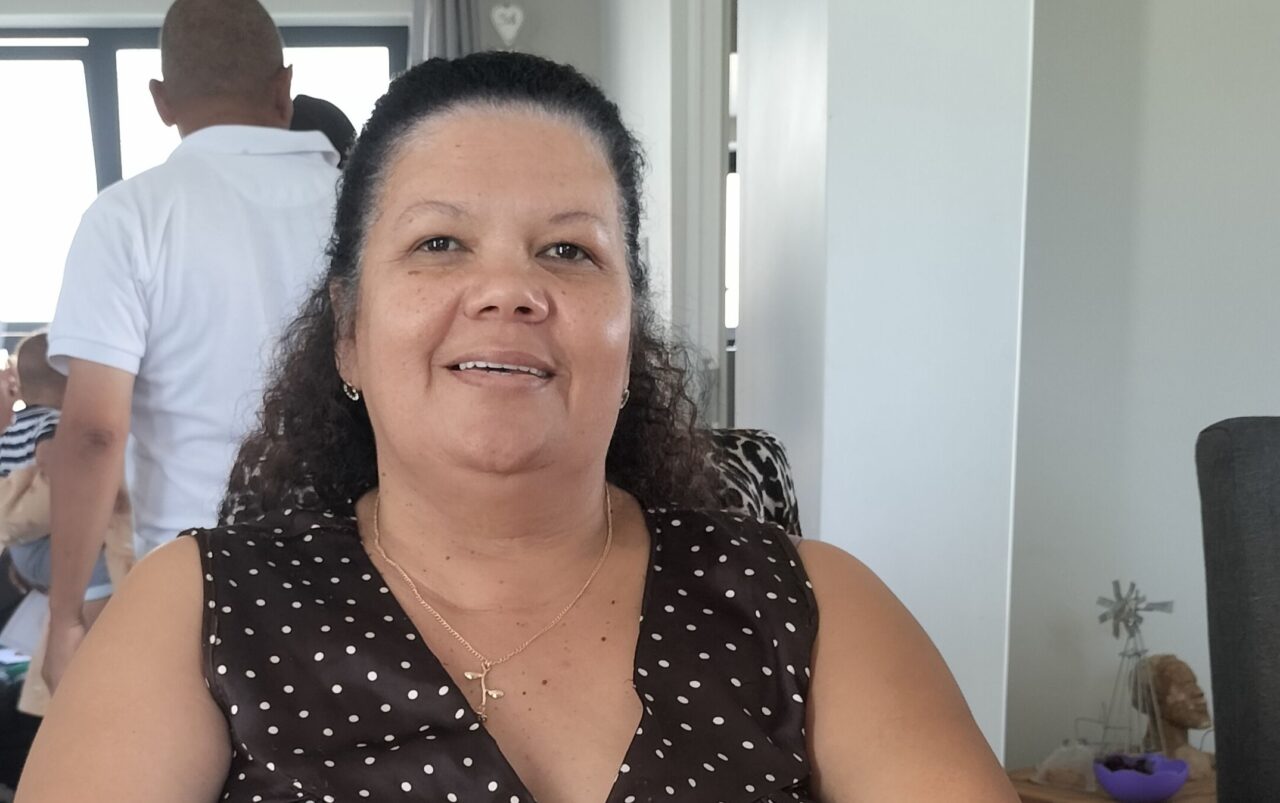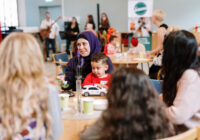For our issue on courage, Eleanor Wessels in Kulls River, Cape Town, South Africa, sent this longer reply to our two questions, and we had to edit it down for the printed jurnal but agreed to publish it like this online. Thank you, Eleanor, for what you share!
Eleanor is a lay minister at St. George the Martyr in Kulls River and works as a junior bookkeeper.
***

My involvement in the community is that I serve as a lay minister in our church, St. George the Martyr, Kulls River. Apart from serving in the sacntuary, we are also serving parishioners in our community with home communion, service of comfort and visiting the sick at home or hospital.
The area in which I reside is very challenging, and I am always vcalled to serve and fulfill our Parish Vision, which is ”to be God’s light by doing God’s will, growing our faith and serving our community”. Personally, the areas I need most courage for are to be bold and strong and to believe more in myself.
My community is faced with many obstacles within their household and outside. Throughout these hardships we are called to be united to fight against drug abuse, poverty, unemployment, and gangsterism.
The root of our high unemployment and poverty rates are due to the large influx on our country’s economic structure. Drug abuse, gangsterism and gender based violence are caused by the increase in children leaving school at an early age or not attending school at all. Young people, ages 7 and up, are forced to take to the streets and get involved in these activities because of poverty, lack of love and lack of support in their homes.
Our people are hopeless, and we as a church must share God’s love and hope among our community.
This is really challenging. I pray to God to keep us faithful to bring hope to the hopeless.
Covid-19 has added much heartache and brought more hardship to our people. We were and are still challenged in dealing with grief. Support groups are much needed to help our people.
The church has the obligation to, or is called to, keep our young people interested in coming to worship on Sundays. Our rector at St. George the Martyr, Canon Rodney Whiteman, includes our young people in our Sunday worship by asking them to do the daily Bible readings and prayers of the church.
In my research, I find that young people experience God much deeper during praise and worship, singing choruses with a live band. They would like church to have such evenings where they can, in an informal way, share their personal testimonies, and they believe that in that way, by sharing stories, they can encourage each other not to give up or take to these immoral activities.
I think our church in some way is hearing the young. We have a junior and teens youth ministry every Friday evening, which is well attended by our young people, aged between 10 and 18 years old. Our church also has a young adults group called GAP, which includes young married couples.
I certainly hope that the church is fulfuilling its calling to keep spirituality alive in our young people’s lives. The church has a great responsibility and is challenged by all this.
Poverty is real – our parish ministers to the needy by going out to the Wesbank community, feeding them, and resources are drawn from donations received from parishioners. We also assist the community with food parcels where needed. I am truly grateful for this ministry, and I continue to pray that God will keep us faithful to our vision and ministry, to be God’s light in our community and to bring hope and restor dignity to God’s people.
In conclusion, the church has an ongoing challenge to reach out to our broken communities and to establish a much better relationship with those that don’t understand Christianity and are not experiencing God’s love. We, the church, need to share more outside our church building, to share God’s undeserved love, faith and hope to God’s people.




